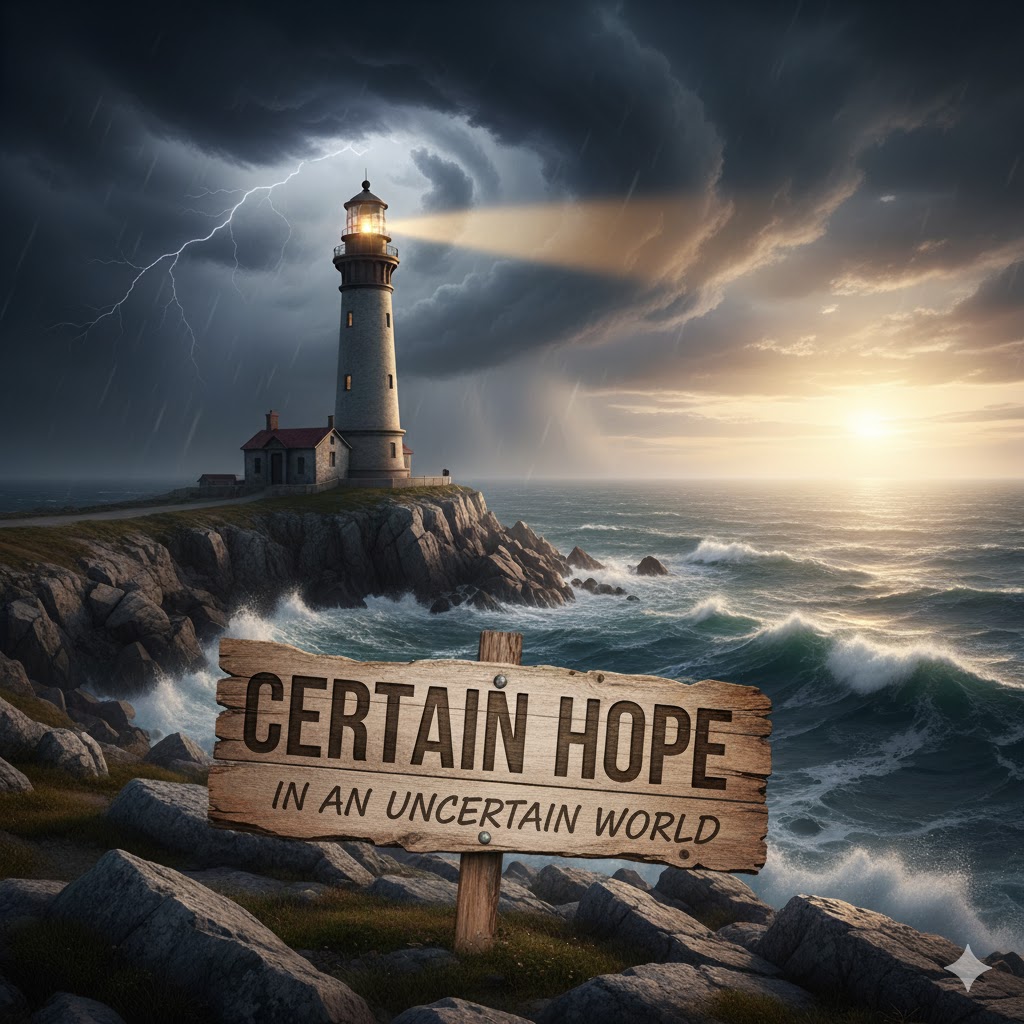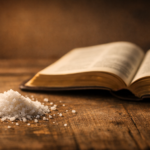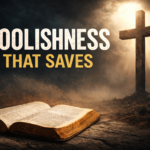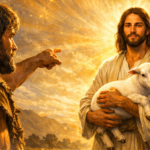
Text: Luke 21:29-36; 2 Thess 3:1-5; Mal 4:1-6
Theme: “1 – Why we leave in Hope”
Series: Certain Hope in an Uncertain World
________________________________
Introduction – A pastor once shared with me a note he received from a person of his church that read: “Pastor, in previous years I often left church feeling guilty and hopeless. Recently I have been leaving church with a sense of optimism, encouragement and hope.” Do you echo that? In which circumstances?
1 – Uncertain Times
Let’s reflect about the first part. The world is not short of options for guilt, discomfort, or hopelessness.
In the outside world, it could be the ongoing wars. It could be tariffs. It could be the news cycle, inflation, ideologies and teachings that clash with our Christian principles. Health, safety, peace—they all seem fragile. As we see, there’s more than one source for those feelings. If we’d go around the nave here, I am sure we would have 10, 15, perhaps 20 or more reasons why our world feels insecure, unpredictable and challenging, generating all sorts of feelings that unsettle us. Some of us may feel anxiety about cultural decline, personal trials, or doubt God’s presence in uncertainty. Some of us may ask if God still cares or what relevance faith has in today’s world.
This fear, discomfort and sometimes hopelessness, this same uncertainty, existed in biblical times. In the readings today, we heard that Malachi warned of a coming day of fire for a people who were uncertain about things. Jesus, in the Gospel, spoke of distress and fear on earth. And Paul wrote to believers in the city of Thessalonica who were anxious about their future while discomforted in their present by cultural trends. Does it seem all too familiar? It surely does. We too live in uncertain times. And uncertain times bring with them fear, discomfort and hopelessness.
Then there’s the inner world. One of the most difficult, and often less addressed causes for guilt is the challenge of confronting the world in here (points to the heart). If we are sincere with ourselves, there are things inside our own world that we hesitate in addressing head on.
In the Gospel, Jesus warns against hearts “weighed down with dissipation and drunkenness and the cares of this life.”
This is not self-help talk—this is spiritual diagnosis. When Jesus diagnoses a heart “weighed down,” He is identifying a spiritual condition that manifests in worldly habits. Today’s “drunkenness” may look like -Bad habits left unaddressed, -Idleness and apathy (as Paul addresses in 2 Thess 3:11), distraction, endless entertainment, constant anxiety, a mind always consumed by the next thing.
As we notice that, and uncertainty creeps up, it is not too hard for us to resort to escapism to cope with the growing sentiment that threatens to take over our hearts.
This list does not aim at making you dwell in that feeling of guilt and hopelessness mentioned in the note handed to that pastor. It just highlights how uncertainty—whether out there or in here—is dangerous because it can cause us to doubt our faith and our future and leads us to guilt and hopelessness. That’s why we need God meets us right here—in our weakness, our avoidance, our fear.
The readings for today warn us about the greatest fear and uncertainty of all that may take over our hearts – “The day of the Lord”. There is a day of reckoning, of judgment. A holy God will summons all the nations for that. And one question lingers in that context: how can imperfect people stand before a Holy God?
We can’t. We will never meet the standards. That’s why, in the middle of all this, we need to hear the one voice rises above the noise: “The Lord is faithful. He will establish you and guard you.”[1] (2 Thess 3:3) That’s the anchor: God’s faithfulness is our certainty.
2 – Certain Hope
“In previous years I often left church feeling guilty and hopeless. Recently I have been leaving church with a sense of optimism, encouragement and hope.” If we can identify with the first part, can we also live the same that the second part highlights – encouragement and Hope? How can we still leave this place in Hope, in the midst of all of the uncertainty around us and inside us?
There’s only one source: God’s means through which He delivers His Grace, presence, and love. His Word, His Sacrament. The presence of brothers and sisters sharing the teaching and the faith.[2]
Here we hear Paul with the wonderful statement: “The Lord is faithful.” Not “was.” Not “will be.” Is. Always. And this certainty is a message we all need to hear. While Paul was correcting some in Thessalonica who were so certain Christ was coming they had stopped working, he was simultaneously assuring others who were terrified and anxious. My point today addresses the primary pastoral reality many of us face: paralysis by uncertainty. But the truth applies to all: The faithfulness of God is the fixed point. Because your future is certain in Christ, you are guarded from the paralysis of uncertainty and freed for faithful action right now.
Think about it: at the cross, everything looked uncertain. The disciples fled. The sky darkened. But what seemed like chaos was God’s plan happening. Then He came back to life, and His resurrection isn’t just a sign of God’s presence; it is the absolute certainty that the payment for our sin was accepted, and that we are declared righteous—saved—by God.
While God does not remove every uncertainty at once, He redeems them all. His presence means that even what feels unstable is drawn into His saving purpose. Because we are rooted in the certainty of God’s character and Love. As Paul writes elsewhere, “He who calls you is faithful; He will surely do it.”
- Why we leave in Hope every Sunday
And then I think again of those words: “Recently I have been leaving church with a sense of optimism, encouragement and hope now.”
Why? Why can that person, what can you leave church every week in Hope and not run away from the world’s problems in escapism, nor to obsessively try to control the future?
- First of all, as the readings today point to, because our future is already decided and redeemed. Jesus has already won the prize of the eternal life that is applied to us through faith. Are you uncertain about the future? I am at times too, that will happen. But we don’t need to be afraid of what comes after the future – life eternal. Jesus has won eternal life, and through faith it is yours. We may be uncertain about tomorrow, but not about eternity. We can leave this place in Hope because we know where we are going.
- Because we leave grounded in God’s Word and Sacrament. The Scriptures reveal a story that is not spiraling out of control but moving toward the return of Christ. We leave this place in Hope for we know that the more we anchor our minds there, the less we are swayed by daily headlines. What God promises, He delivers.
- Because we can pray instead of panic. Jesus said, “Watch at all times, praying.” We leave this place in Hope because prayer transfers the weight of worry from our shoulders to God’s hands. It is less about our predictions and more about His presence.
- Because we are called to work faithfully where you are. Because your eternal future is certain, you don’t grow weary, idle, or anxious in your daily life. The certainty of Christ’s return allows us to be active, engaged, and purposeful in the present, while leaving the final outcome securely in His faithful hands. (On the contrary, we leave this place in Hope and therefore we do what Paul urged the Thessalonians to do: we do not to give up when times were hard. Faithfulness in small things—loving your neighbor, serving your family, doing good—becomes a quiet testimony to a steadfast God. That’s Paul’s reminder to the Thessalonians: Don’t give up. Keep doing the good work God has set before you. [3])
- Because the World is in His hands. We leave this place in Hope because we know that no matter what human leaders, princes, dictators or influencers desire to do, He is the King of kings who’s got the whole world in His hands.
These are not motivational tips. They are fruits rooted in of faith—the fruit of receiving Word and Sacrament. Our security coomes from God and frees us to active obedience in love.
At this point, here are a couple of questions that might pop up in your mind as you reflect on faith and certain hope:
- “If my eternal future is secure, why does it still matter what I do day-to-day?”
Response: Your salvation is entirely God’s work through faith in Christ—nothing you do earns it or keeps it. But faith is living—it produces fruit naturally, like a good tree. You don’t do good works to become saved; you do them because you are saved.
- “How do I know if I have ‘real’ faith? What if I’m just fooling myself?”
Response: Faith isn’t a feeling you generate or a certainty you achieve on your own. Faith clings to Christ and His promises in Word and Sacrament. Do you hear the promise “Christ died and rose for you” and say “Yes, for me”? That’s faith. Your assurance comes from God’s faithfulness, not your own spiritual performance. When in doubt, return to your baptism—God claimed you there, and He doesn’t take it back.
- “What’s the difference between ‘certain hope’ and just positive thinking or optimism?”
Response: Positive thinking is largely based on your ability to reframe circumstances or generate good feelings. Christian hope is based on God’s character and promises—specifically, what Christ has already accomplished. Optimism says, “Things will probably work out.” Hope says, “Even if things fall apart, my eternal future is secure in Christ, and God is faithful.”
You may be a member that has been walking with Christ for a long time. You may be a newcomer to faith, you may be a visitor, it doesn’t matter. This word if for you: Hope in Christ is not earned, but given freely in Jesus Christ, who died and rose for you. It is for you, and it is given to you through faith in him.
Conclusion – Our world is uncertain—always has been, always will be. But God’s faithfulness is certain—always has been, always will be. When everything feels unstable, remember:
- You stand on the solid ground of His grace.
- You live under the certain promise of His return.
- You are guarded by the Lord who never changes.
So here’s what I hope your mental note would be today as you leave this pace in Hope: “Pastor, I can’t deny that I may leave church and still face guilt, fear and sometimes hopelessness in during my week. But today I’m leaving church again with a sense of encouragement and hope. Because Christ is my living Hope and my eternal life.”
_____________________________
[1] This anchor of faithfulness is what allows us to safely look at Malachi’s Day of Fire. Some might rush to say we are giving you cheap grace by quoting Paul’s comfort so soon. But I submit that the terror of the Law—the very conviction that our inner uncertainty proves we are unprepared stubble—would drive us only to despair if we did not first acknowledge that the Gospel certainty is the only framework that lets us hear the Law truthfully.
[2] “Well”, one might think, “that’s Paul and those beautiful times of the Bible era, when everything was easier because God was present with them. What about our time? Our time, is different, but God is the same. God’s faithfulness is rooted in God’s Love, Grace and Promises. IN every season of the People of God, He has kept His promises, generation after generation. His faithfulness is not an abstract quality—it is embodied in Jesus Christ.
[3]Paul provides the anchor: “The Lord is faithful. He will establish you and guard you against the evil one.”
- The Faithful Work and Watchfulness (Luke 21:36 & 2 Thess 3:10):
- Because our salvation is certain, we are called to faithful work. Paul makes it clear: if anyone is unwilling to work, he shouldn’t eat. Working diligently in our vocation is a way of rejecting anxiety and honoring God’s design for our lives.
- We are called to “watch at all times, praying.” This watchfulness is not tense surveillance of the news, but a spiritually attentive heart, continually orienting itself toward God through prayer. Prayer keeps the heart un-weighed and focused on the certainty of Christ’s power to uphold us so we can “stand before the Son of Man.”
- Our Great Certainty: The Rising Sun (The Gospel)
The only antidote to the terror of the Law is the Certainty of the Gospel, which is found in a Person.
- Malachi’s Hope: The prophecy immediately pivots. For those who “fear [revere] my name,” the Sun of Righteousness shall rise, with healing in its wings (Mal 4:2). This is the Gospel.
- This Sun is Christ, whose rising on Easter morning inaugurated the healing of salvation. He takes the place of the judgment fire.
- The certainty is not that we are saved from the end of the world, but that we are certainly saved through it by His grace.
- Luke’s Command: Because of Christ’s certain victory, the command changes from panic to assurance. Jesus tells us to look up and raise your heads, because your redemption is drawing near (Luke 21:28). We are invited to face the future not with dread, but with certainty that the One we trust is returning to claim us.
The Certainty of the Gospel: Christ’s return is certain, and our redemption in Him is certainly accomplished and guaranteed.
[1] The world’s uncertainty isn’t just about tomorrow’s stock market or politics; it’s about the final outcome. The Bible confirms this uncertainty with a certainty of its own: judgment.
- Malachi’s Furnace (The Fear): The prophet speaks of the Day of the Lord coming like an “oven” or “furnace,” consuming the arrogant and wicked. This is the Law—a certain, terrifying end for all who try to stand on their own merit. We stand in an uncertain world where justice often fails, but Malachi assures us that divine justice is certainly coming.
- Luke’s Warning (The Unprepared Heart): Jesus confirms this certainty of judgment but focuses on the uncertainty of our readiness. He warns that the Day will come “like a trap” on an unprepared world, especially those whose hearts are “weighed down with dissipation and drunkenness and cares of this life.” The uncertainty is not in God’s timing, but in our tendency to be distracted, dull, and spiritually unready.
The Certainty of the Law: The world is certainly heading toward a final, divine judgment, and we are certainly unprepared on our own.
Questions and Answers
- “If my eternal future is secure, why does it still matter what I do day-to-day?”
Response: Your salvation is entirely God’s work through faith in Christ—nothing you do earns it or keeps it. But faith is living—it produces fruit naturally, like a good tree. You don’t do good works to become saved; you do them because you are saved. As Luther said, “We are saved by faith alone, but faith is never alone.” Your faithful work, love for neighbor, and perseverance aren’t the root of your salvation—they’re the fruit of it.
- “How do I know if I have ‘real’ faith? What if I’m just fooling myself?”
Response: Faith isn’t a feeling you generate or a certainty you achieve on your own. Faith clings to Christ and His promises in Word and Sacrament. Do you hear the promise “Christ died for you” and say “Yes, for me”? That’s faith. Luther struggled with this too and found peace not by looking inward at his feelings, but outward to Christ’s objective work. Your assurance comes from God’s faithfulness, not your own spiritual performance. When in doubt, return to your baptism—God claimed you there, and He doesn’t take it back.
- “What if I’m struggling with one of those ‘inner world’ issues you mentioned—bad habits, resentment, escapism? Does that mean I don’t really believe?”
Response: No. Christians are simultaneously saint and sinner—justified before God, yet still battling sin daily. Struggling with sin doesn’t disqualify you; it’s evidence you’re human and in need of grace. The difference is this: unbelievers justify their sin or ignore it; believers confess it, repent, and cling to Christ’s forgiveness. You don’t have to clean yourself up before coming to God—come messy, confess honestly, and receive His grace again and again. That’s what Word and Sacrament are for.
- “I feel paralyzed by anxiety about the future. How is ‘just praying’ supposed to help practically?”
Response: Prayer isn’t magic—it’s relationship. When Jesus says “pray instead of panic,” He’s inviting you to transfer the burden from your shoulders to God’s. Prayer reminds you who is actually in control (not you), and it aligns your heart with God’s promises. Here you’re no longer trying to mentally solve every “what if.” You’re entrusting those outcomes to a faithful Father. Prayer doesn’t always change circumstances immediately, but it changes you—and that changes how you walk through circumstances.
- “You said God redeems uncertainty but doesn’t remove it. So why doesn’t He just fix everything now?”
Response: We live between Christ’s first coming (where He defeated sin, death, and evil) and His second coming (where He will fully consummate that victory). This “in-between” time is marked by waiting, suffering, and yes—uncertainty. But it’s not purposeless. God uses this time to grow faith, produce endurance, and draw people to Himself. The uncertainty you feel is real, but it’s also temporary. One day, Christ will return and make all things new. Until then, He walks with you through the uncertainty, guarding and sustaining you.
- “I’m new to Christianity / not sure I believe yet. Is this message for me?”
Response: Absolutely. You don’t have to have it all figured out to hear this good news. In fact, if you’re feeling uncertain—about life, faith, God—that’s exactly why this message matters. God doesn’t wait for you to believe perfectly before offering hope. He offers Christ freely: “Come to me, all who are weary and heavy-laden, and I will give you rest.” Faith begins not with certainty about yourself, but with hearing about Christ—His life, death, and resurrection for you. Keep coming, keep listening. Faith grows as you hear the promise.
- “What’s the difference between ‘certain hope’ and just positive thinking or optimism?”
Response: Positive thinking is based on your ability to reframe circumstances or generate good feelings. Christian hope is based on God’s character and promises—specifically, what Christ has already accomplished. Optimism says, “Things will probably work out.” Hope says, “Even if things fall apart, my eternal future is secure in Christ, and God is faithful.” Hope can coexist with grief, doubt, and hardship because it’s anchored outside yourself. It’s not wishful thinking—it’s trust in a God who keeps His word.
- “You mentioned ‘Word and Sacrament’ a lot. What does that actually mean for my daily life?”
Response: Word and Sacrament are the means through which God delivers His grace to you. The Word (Scripture, preaching) speaks God’s promises into your ears and heart—reminding you who God is and what He’s done. The Sacraments (Baptism, Holy Communion) are God’s visible, tangible promises—water, bread, wine—where He says, “This is for you.” Daily life? Read Scripture. Come to church. Receive Communion. Let God feed you regularly so you’re not running on empty when uncertainty hits. These aren’t religious hoops to jump through—they’re lifelines God provides.






